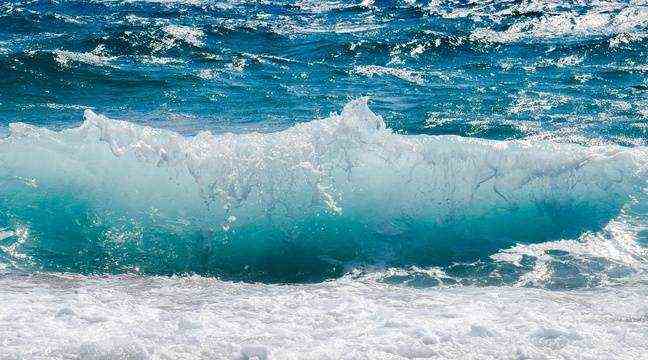This is good news on the state of the ocean and our plates that the review publishes this Wednesday. Nature. “There is less mercury that arrives in the rain than previously thought, and less mercury itself that the ocean receives”, summarizes Lars-Eric Heimbürger-Boavida, author of an unpublished article on traces of oceanic mercury. CNRS chemical oceanographer at the Mediterranean Institute of Oceanology, Aix-Marseille University, he has been working for years on this heavy metal with very complex functioning. And whose presence in the ocean comes either from the atmosphere, by rain, or from gases emitted by industry, coal in particular.
One of the peculiarities of mercury is its very strong amplifying power. On the one hand, it is one of the least concentrated elements in the ocean – we speak in nanograms per liter – on the other hand, it has the capacity to multiply by 50 million as soon as it enters the ocean. seawater. This is where the transformation to methylmercury takes place, which is found at high rates in large predatory fish, such as tuna, swordfish and sharks. In France, pregnant women and young children are recommended to limit their consumption to three times a week.
Campaigns in the Atlantic and the Arctic
“How does mercury get into the ocean? “, Asked the international research team. “It was a big challenge, it took us ten years to develop a method to identify the isotopic signature of mercury in water,” continues Lars-Eric Heimbürger-Boavida. At the Endoume marine station, then during sea trips in the bay of Marseille, they collected water, extracted mercury from large samples, and also carried out campaigns in the Atlantic and the Arctic. Until we come to this encouraging conclusion: “The supply of mercury by rain has been overestimated, there is less atmospheric mercury entering the ocean than we thought. Mercury is not mainly provided by rainwater, the ocean breathes it like CO2. “
Listening to the researcher, however, it is still too early to measure the impact of these results on any possible reduction in fish contamination. “We hope so, that’s what we’ll try to verify now. Besides the complexity of mercury, other parameters can change things. Global warming could thus affect the bacterial process of methylmercury production and its transfer to fish. And thus temper the good results of the day. “There are a lot of unknowns, and that’s what makes studies on mercury so fascinating,” concludes Lars-Eric Heimbürger-Boavida, without departing from a certain optimism.

